Jane Ridley
2014 has been the year of 1914. In the same way that Christmas puddings appear in supermarkets in October, many of the contestants in the publishing race for 2014 defied starter’s orders and came out pre-maturely in 2013. What has been striking about the bumper crop of first world war books is the terrifically high standard.
One of last year’s books which I’ve only just got round to reading in paperback is David Reynolds’s Long Shadow (Simon & Schuster, £9.99). Because the Great War seemed so meaningless, killing so many British soldiers for reasons which remain remote and obscure even today, it has always been especially difficult for the British to make sense of it. Yet of all the European countries Britain dealt with its consequences — mass democracy and the rise of Labour — remarkably well. What the hell was it all about? asks Reynolds, and the answers he delivers are always interesting and sometimes brilliant.
Margot Asquith’s long-awaited Great War Diary 1914–16 edited by Michael and Eleanor Brock (OUP, £30) takes the lid off No. 10 during Asquith’s difficult wartime premiership, and gives a compelling picture of Liberal England and the belle époque in meltdown under the nightmare stresses of a war that no one could have predicted or planned for.
James McConnachie
If asked in January 2014 whether I was interested in Aristotle, reptiles and severed heads, I’d have shrugged and pouted doubtfully in a sceptical, French sort of way. At best. Three wonderful books on those subjects gave my lazy thinking a rough drubbing.
The scintillatingly argued The Lagoon: How Aristotle Invented Science by Armand Marie Leroi (Bloomsbury, £25), transformed a man I thought of as a tedious pedant with a leaden turn of phrase into a pioneering proto-biologist, whose work is steeped in the flora and fauna of the ancient Mediterranean.
Cold Blood: Adventures with Reptiles and Amphibians by Richard Kerridge (Chatto, £16.99) is at once a poignant memoir of a particular kind of bug-hunting boyhood, and a hot defence of its cold subject; everyone is seasoning serious non-fiction with autobiographical fragments these days, but it’s rare to find both elements handled equally well.
As for the scholarly yet sprightly Severed: A History of Heads Lost and Heads Found by Frances Larson (Granta, £20), this was a challengingly gruesome read. But once the nightmares have subsided, I know its curiosity and intellectual energy will haunt me — in a good way — for a long time.
Marcus Berkmann
As someone who spent several years writing TV reviews mainly for laughs, I kneel before the twin idols of Clive James and Nancy Banks-Smith, without whom I wouldn’t have had a career. As we all know, James is a touch under the weather these days, and it was probably for sentimental reasons that I found my way to A Point of View (Picador, £16.99, published in 2011), a collection of his contributions to the Radio 4 series between 2007 and 2009. Each of these talks, 60 in all, runs to around 1,600 words, and James appends an explanatory afterword to every one. They are magnificent, possibly even masterly and, added together, comprise a single-volume primer on how to write for broadcast. In his heyday, as even James himself might admit, he was prone to bumptiousness, but that has all gone now. In old age, his writing retains all its elegance, intelligence and pinpoint comic timing, and there’s a softer heart to it: hard-won wisdom, you might call it.
This was the only book I read this year that I didn’t want to finish, and I ended up stretching it over three months, purely to extend the pleasure.
Alan Johnson
H is For Hawk (Cape, £14.99) is the most ‘A for Amazing’ book I’ve read in a long while. Helen Macdonald weaves together three separate but related strands to produce a majestic tapestry. No reader could fail to be more interested in its primary subject by the end — or to be impressed by the beauty of Macdonald’s prose.
Donal Ryan burst on to the literary scene last year with his prize-winning The Spinning Heart. His latest novel, The Thing About December (Doubleday, £12.99), is a powerful rage against the moral vacuum at the heart of the Irish economy’s transformation into a Celtic Tiger, told in the sad, funny and utterly captivating story of poor Johnsey Cunliffe.
Some of the best political biographies I have read were written by Roy Jenkins. Now John Campbell has given us the definitive life of the great man himself. His Roy Jenkins (Cape, £30) is a towering achievement.
Sam Leith
I liked Adam Nicolson’s The Mighty Dead: Why Homer Matters (William Collins, £25) so much that — if I had had the first idea how to operate in a betting shop — I would have put a pony on it to win the Samuel Johnson prize. In the event, my incompetence saved me £25. But Nicolson was robbed. Here is a book bursting with enthusiasm, erudition and eccentricity: a travelogue, a memoir, a work of literary criticism and, at bottom, an archaeology of the western imagination. I found it completely thrilling.
Also, in John Berryman’s centenary year I was delighted to see Farrar, Straus and Giroux reissuing his work in some gorgeous new editions. The Heart is Strange (FSG, $26) is the one to start with: a wide selection from across Berryman’s whole career, including some previously uncollected rarities and with a clever and useful introduction by its editor Daniel Swift. Read it, and you think, in JB’s words: ‘Fancy the brain from hell held out so long.’
Molly Guinness
What You Want, or the Pursuit of Happiness by Constantine Phipps (Quercus, £20). This is a deeply eccentric book — a novel entirely in verse set in a theme park that takes in the history of philosophy and the tale of a disintegrating marriage. In a few witty rhyming couplets, my cousin Constantine Phipps can sum up an entire character with all its foibles or a whole system of ethics. And shining through the parade of philosophers, psychiatrists, dead presidents and theme-park attractions is a sense of deep wisdom and reasonableness. Some of the verses, especially towards the end, are truly moving and beautiful.
Joshua Ferris’s To Rise Again at a Decent Hour (Viking, £12.99) is narrated by a misanthropic New York dentist. Paul O’Rourke wishes he didn’t have to dwell on death and the futility of it all, but the endless parade of neglected gums and unflossed teeth makes that difficult. Things start getting weird when someone adopts his name online and starts spreading the word about the Ulm, an ancient people no one’s ever heard of till now. O’Rourke is a brilliantly funny narrator, and he’s also oddly adorable. There’s a constant gulf between his feelings and how he expresses himself — at one point he bursts into tears on meeting an old friend at the gym, but continues the conversation as if nothing’s happening, hoping the friend will assume the tears coursing down his cheeks are sweat.
Melanie McDonagh
Muriel Spark wasn’t only one of the great British novelists but a cracking literary critic and a lovely essayist. Her book on Mary Shelley is extraordinarily perceptive; ditto, but more fun, is her writing on the Brontës. Carcanet Press, having last year reissued the Shelley book, has now republished The Essence of the Brontës (£12.95), Spark’s compilation of their letters, with essays. It’s a joy on both fronts. Her piece on the siblings as teachers (‘genius, if thwarted, resolves itself in an infinite capacity for inflicting trouble’) is mordantly funny — her sympathies are entirely with their pupils — while the selection of letters is very fine and occasionally downright malicious. Consider Charlotte on Pride and Prejudice: ‘An accurate daguerrotyped portrait of a commonplace face; a carefully fenced, highly cultivated garden, with neat borders and delicate flowers; but no glance of a bright, vivid physiognomy, no open country, no fresh air.’ Fabulous.
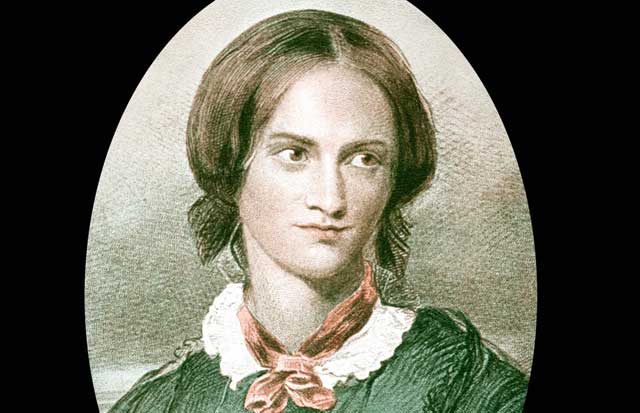
Christopher Howse
Wonderful year for Pevsner, or rather for us who use the guides as we potter about. Four new vols: Bedfordshire, Somerset, Cornwall, Cambridgeshire, too big for the pocket, but a reasonable £28 a kick, thanks to Yale. A triumph of perseverance.
Raymond Edwards’s biography Tolkien (Robert Hale, £25) is the best one could hope for while the letters and papers remain locked in the Bodleian. Tolkien embraced the northern theory of courage: ‘Defeat is no refutation.’ That was just as well, surrounded as he was by death, delay and failure. It was amazing that he wrote even The Lord of the Rings.
Charles Saatchi’s collection of thoughts on photographs, Known Unknowns (Booth-Clibborn, £16), seemed a crime against the reader, even if the perpetrator couldn’t help it. Tawdry, violent, vulgar and shallow, it made me feel sick.
Charlotte Moore
Common People by Alison Light (Fig Tree, £20) is a shot in the arm for family historians like me. Her wise, wide-ranging interpretations of her family’s past elevate our dusty grubbings to the status of ‘real’ history. Sebastian Barry’s A Temporary Gentleman (Faber, £17.99) stood out amongst novels about Irish drunkenness, or drunken Irishness, because the grandeur of the prose made it soar.
The most satisfactory re-reading of the year was Siegfried Sassoon’s Great War trilogy, Memoirs of a Fox-hunting Man, Memoirs of an Infantry Officer and Sherston’s Progress. An interesting little find was E. Nesbit’s childhood memoir, Long Ago When I Was Young. The title suggests misty nostalgia, but the book is tough, frightening, devoid of sentiment and atmospherically illustrated by Edward Ardizzone.
Finally, my disappointment of the year: John Williams’s Stoner. I just didn’t get it.
Philip Hensher
The books I liked best this year were all richly detailed. Why read a book unless it’s going to go into all the nooks and crannies? Everyone is going to recommend Sofka Zinovieff’s The Mad Boy, Lord Berners, My Grandmother and Me (Cape, £25) about the ménage at Faringdon House. And rightly so — it is the story that everyone wanted told, and she was the person to tell it.
Stephen Lloyd’s Constant Lambert: Beyond the Rio Grande (Boydell Press, £45) was wonderfully complete, and this composer-conductor, epic drinker and best friend of Anthony Powell is exactly the sort of minor enchanting figure who too often gets fobbed off with a brief skate-through. I finished it thinking that someone ought to bring out Lambert’s collected letters.
Michael Kater’s excellent Weimar: From Enlightenment to the Present (Yale, £45) chronicles a town that hosted some staggering bouts of unpleasant behaviour — or so it turns out. Oddly enough, I thought I loved Weimar, but I finished the book feeling I never wanted to go there again.
James Hamilton’s A Strange Business (Atlantic, £25) is one of the best works of art history for years — a riveting account of how Constable, Turner and contemporaries made (or failed to make) their money. Material for two dozen historical novels here.
I found this year disappointing for novels, though much enjoyed Karen Joy Fowler’s We Are All Completely Beside Ourselves (Serpent’s Tail, £7.99). You should read it quickly, though, before someone tells you the twist.
Lewis Jones
Music Night at the Apollo: A Memoir of Drifting (Bloomsbury, £14.99) describes the year Lilian Pizzichini spent with her cats on the Adam Bonny, a narrowboat moored on the Grand Union Canal amid the factories and sink estates of Southall. The boat stays moored but, on a tide of cider and cheap vodka, and fuelled by skunk, cocaine and heroin, Pizzichini takes a wild and perilous voyage, encountering not only the local Punjabi and Somalian lowlife but also her own ‘white underclass ancestors’. It sounds grim, but it’s actually rhapsodic, funny and weirdly hopeful.
Ian McEwan is usually impressive, and The Children Act (Cape, £16.99) is especially so. A subtly musical arrangement of urgently topical issues — legal, medical, religious and, as always, erotic — it may be read at a sitting, but resonates for much longer.
John Preston
Amanda Vaill’s Hotel Florida: Truth, Love and Death in the Spanish Civil War (Bloomsbury, £25) is one of the best group biographies I have read in years. In early 1937 a very strange collection of people descended on a rundown Madrid hotel, including Ernest Hemingway, Martha Gellhorn, Kim Philby and Errol Flynn. In theory, they had come to find the truth about what was happening, but, as Vaill shows with lethal sharpness, all of them were far more at home with falsehood.
The American writer Charles Portis is best known for his novel True Grit, but as Escape Velocity: A Charles Portis Miscellany (Overlook Duckworth, £9.99) reveals, he’s got a terrific nose for a story and a wonderfully sympathetic eye. One of the pieces here is about Portis’s quest to find the cheapest motel room in America. His winner — in a town called Truth or Consequences in New Mexico — has a ‘central crater in the mattress wallowed out by a long series of jumbo salesmen snorting and thrashing about in troubled sleep’.
Martin Gayford
If ever there was a biography in photographs it is David Dawson’s A Painter’s Progress: A Portrait of Lucian Freud (Cape, £35). Covering the last two decades of Freud’s life, this is an intimate record of the people he knew, his works — finished and unfinished — and the rooms in which he lived. Dawson, Freud’s assistant and a painter himself, has the artist’s eye for a beautiful and telling image (see below).
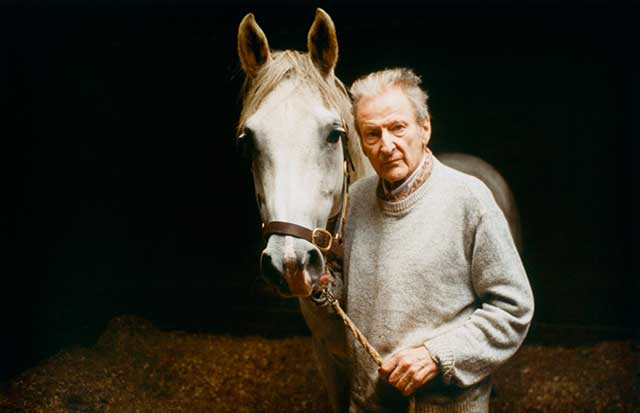
Iraq probably doesn’t feature in most of our travel plans for the foreseeable future. Justin Marozzi’s Baghdad: City of Peace, City of Blood (Allen Lane, £25) is an admirable substitute for a visit to that city — pungent history, infused with the writer’s own experiences of the place.
A Strange Business by James Hamilton (Atlantic Books, £25) provides a scholarly but also enjoyably anecdote-studded guide to the 19th-century London art world. The accounts of the eccentricity and rapacity of artists and collectors alike make one mutter ‘plus ça change’.
Susie Dent
Maxim Leo’s Red Love (Pushkin, £8.99), is a compelling memoir of young life in the ebbing years of the GDR. It’s the story of conflicting allegiances to a country that is a prison but also a home, where children instinctively switch between school essays on the importance of the Party and the universal rituals of football and kissing girls. An important book, magnificently told.
If you like the sound of being spliflicated, muckibus, pottical or swacked, David Crystal’s Words in Time and Place (OUP, £16.99) is for you. Based on the Historical Thesaurus of the Oxford English Dictionary, it contains synonyms for every subject of any importance, including being drunk, going to the loo, terms of endearment, and dying. You may decide against calling your loved one a cabbage, pug, suckler or bagpudding before you visit the gingerbread office, but you will most definitely enjoy the ride.
Ian Thomson
William Burroughs was a patrician-looking writer of grave formal manners and an unsmiling, W.C.Fields-like black humour. William Burroughs: A Life (Weidenfeld , £30), by the counter-culture guru Barry Miles, offers a riveting chronicle of a life lived to the max in the American underbelly.
The Letters of Samuel Beckett: 1957–1965 (CUP, £30) is the third volume in what will one day be seen as the most significant literary correspondence of its time. In spite of his reclusive personality, Beckett had a gift for friendship and, as the splendid letters show, a near-Wildean repartee. (‘I have finished Pasternak with mixed feelings’, he writes after wading through Doctor Zhivago, adding, ‘which is more than I hoped for’).
I very much enjoyed Philippa Comber’s tender memoir of the German scholar-writer W.G. Sebald, Ariadne’s Thread (Propolis, £14.99). Sebald was on the cusp of international recognition when, driving one day in 2001 on the A146 from Norwich to Lowestoft, he died in a head-on collision. Pathetically, Sebald’s dog Maurice led the funeral procession, ‘and, shortly afterwards, also died’. Happy Christmas, everybody.
Piers Paul Read
Constantine Phipps’s What you Want, or the Pursuit of Happiness (Quercus, £20) is a novel in mesmerising rhyming verse. The hero Patrick, after being left by his wife Louise, has a long hallucinatory dream in which he is taken through a theme park by Sigmund Freud. Flashbacks to his exotic love life. Intelligent, enjoyable and often profound.
The White Nile Diaries byJohn Hopkins (I.B. Tauris, £15.99) were written in the 1960s but only published now — a beautiful spare narrative describing how Hopkins and a friend from Princeton bought a white BMW motor bicycle in Munich and rode it to Kenya. An excellent portrait of the fag-end of British rule in East Africa.
Every author’s nightmare: his son-in-law has written a novel. To my relief, Tim Walker’s Completion (Windmill Books, £8.99) is a witty, deftly-written portrait of a dysfunctional family in contemporary Britain. Revealing about the young: uncomfortably acute about their parents.
David Crane
Hardly an original choice, but Ali Smith’s How to Be Both (Hamish Hamilton, £16.99). I am not quite sure I know what it’s about — if a novel has to be about anything — but it is such a dazzling bit of writing and storytelling that I really don’t much mind. In War: What is it Good For? (Profile, £25), Ian Morris takes the argument for the evolutionary blessings of warfare to absurd lengths, but as a tour de force of history, biology, anthropology, technological speculation and pretty well everything else it’s hard to resist.
And, finally, Irving Finkel’s The Ark before Noah: Decoding the Story of the Flood (Hodder & Stoughton, £25). Immensely erudite (I assume) and very funny. Anyone with the odd 45 years to spare should seriously think of retraining in Assyriology.
Mark Mason
Cricket-wise it has to be Elk Stopped Play (Bloomsbury, £9.99), Charlie Connelly’s brilliant selection of tales from Wisden’s ‘Round the World’ section. In Pakistan the field is invaded by goats from a prison farm, the MCC (Moscow Cricket Club) mistakenly lays out the pitch for a croquet match, while Estonian players receive an email advising ‘practice will be on Sunday 1300 hrs providing no snow’. The Zhivago Affair by Peter Finn and Petra Couvée (Harvill Secker, £20) was a you-couldn’t-make-it-up account of the CIA’s campaign to smuggle copies of Pasternak’s banned novel into the USSR. At one point they print miniature editions on lightweight paper and throw them through the open windows of buses.
On the fiction front, A Man Called Ove by Fredrik Backman (Sceptre, £14.99) finally rescued all those men who constantly mean to read novels but never get round to it. Crotchety old git Ove argues with neighbours, reluctantly inherits a cat, punches a clown and, by the end of the book, has you wanting to hug him.
Bevis Hillier
John Carey’s The Unexpected Professor (Faber, £18.99) tells, with a stream of good anecdotes and pen portraits, how a Surrey grammar-school boy won a scholarship to Oxford in the 1950s and (rather to his amazement, as he is modest) eventually became Merton Professor of English Literature at that university.
Some critics have been harsh on Carey for his stinging comments on the more boorish public-school boys who were his undergraduate contemporaries. Here, they suggested, was a giant chip on a shoulder to which Polyfilla had never been adequately applied. As I was also a Surrey grammar-school boy who won a scholarship to Oxford in the 1950s (admittedly some years after Carey) I can vouch for his accuracy and fairness.
When Carey is not taking a swipe at the public-school boys, he is genial, light of touch and often very funny. The book is worth its price if only for one delicious pun, made by C.S. Lewis’s friend Hugo Dyson at Merton College high table. There was duck on the menu but the bird served was not duck but pheasant. ‘Ah,’ he remarked, ‘le mallard imaginaire.’
My non-book of the year is Jonathan Rose’s The Literary Churchill (Yale, £25). For a start, this American professor has the insolence to describe as ‘claptrap’ Churchill’s assertion: ‘We shall never surrender.’ Does Rose imagine that, if the Nazis had invaded, the British nation would have meekly lain down with, say, Sir Oswald Mosley as Gauleiter and Edward VIII on the throne with Wallis Regina? (I think that would be a good title for a novel by Robert Harris or perhaps Sally Beauman: what would have happened if, in peace or in war, Mrs Simpson had become Queen?)
Philip Ziegler
Andrew Roberts in his Napoleon the Great (Allen Lane, £30) achieves the near impossible by writing on this extravagantly well-covered subject with a freshness and excitement that makes readers think they have stumbled on something entirely new. John Campbell’s Roy Jenkins (Cape, £30) could hardly deal with a more dissimilar character. Reviewing D.R. Thorpe’s biography of Selwyn Lloyd, Jenkins wrote that he would consider himself very lucky if he was eventually done by a biographer as ‘balanced, sympathetic and well-informed’. Campbell has amply fulfilled Jenkins’s criteria. He unabashedly admires his subject but is far too good a biographer to let his book degenerate into a paean of praise. He provides a masterly picture of a complex man.
James Walton
My two favourite novels of 2014 couldn’t be more different. In Dissident Gardens (Cape, £18.99), Jonathan Lethem tells the stirring, panoramic tale of three generations of American communists in a series of fizzing sentences and grand set-pieces that make no secret of their desire to dazzle — but that dazzle nonetheless. Colm Tóibín’s Nora Webster (Viking, £18.99), by contrast, is extremely restrained: the quietly affecting and tender story of a recently widowed woman in 1960s Ireland as she rebuilds her life, or — given that she’s pretty restrained herself — maybe just watches it re-emerge.
As for non-fiction, I greatly enjoyed The Road to Middlemarch (Granta, £9.99), in which Rebecca Mead uses a deft combination of literary biography, close reading and personal memoir to explore George Eliot’s masterpiece from various angles, all of them illuminating. The result is a wholly convincing, even refreshing defence of serious-mindedness — and a particularly stylish example of what it can achieve.
Peter Parker
Amid the packed ranks of books marking the centenary of the first world war Pete Ayrton’s prose anthology No Man’s Land (Serpent’s Tail, £25) stood out. Old favourites are included (Barbusse, Remarque, Sassoon, Brittain), but the book is refreshingly ambitious in its scope, drawing attention to less familiar authors from many different cultures: Viktor Shklovsky, Arnold Zweig, Robin Hyde, Josep Pla, Ömer Seyfettin, Emilio Lussu, Mulk Raj Anand. A book to remind us of the truly global reach of the war and the many different ways of writing about it.
The best novel I read this year was Akhil Sharma’s droll but devastating Family Life (Faber, £14.99), in which a senseless accident wreaks havoc on an Indian family recently relocated from Delhi to New Jersey. Written with economy, grace, wit and affection, this is the kind of small-scale but perfectly achieved novel all too often overlooked amid the kind of fictional swagger and self-importance that attracts big prizes.
Allan Mallinson
Unsurprisingly my reading this year has been largely of the first world war, and at over 1,500 pages the third volume of John Röhl’s life of the Kaiser, Wilhelm II: Into the Abyss of War and Exile, 1900-1941 (CUP, £45) has occupied a large part of that. As well as breathtakingly heavy-footed, Wilhelm (above) believed himself a better statesman than Bismarck and a better general than the Elder Moltke. Whether or not one agrees ultimately with all Professor Röhl’s judgements, his arguments are commanding.
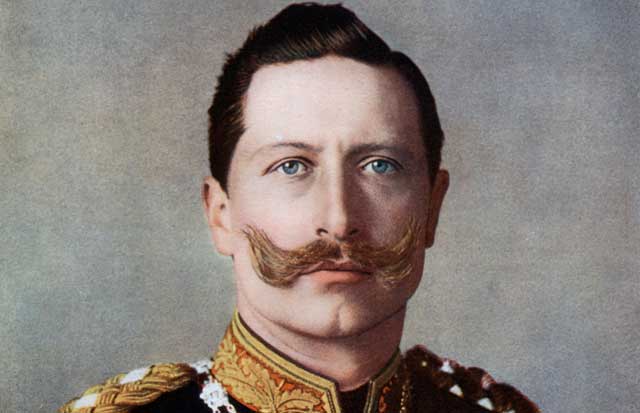
David Jones’s In Parenthesis, a soldier’s tale in lyrical verse and prose, was first published in 1937. In the foreword, T. S. Eliot, its publisher at Faber, called it ‘a work of genius’. Jones, steeped in Celtic lore, a Catholic convert (having stumbled on mass being celebrated near the front line) and by his own account an indifferent soldier, is the voice of the ranks in the middle years of the war: ‘The “Bugger! Bugger!” of a man detailed, had often about it the “Fiat! Fiat!” of the saints . . . as Latin is to the Church, so is Cockney to the Army, no matter what name the regiment bears.’ The Folio Society have published a beautiful new edition (£44.95).
Matthew Parris
As the year unwinds I’m rebuked by hints all around me that a book I comprehensively panned in Literary Review is basically true. The Establishment and How They Get Away With It by Owen Jones (Allen Lane, £16.99) is an intellectual mess, paranoid, partial and partisan; and its central thesis — that we are unwitting slaves of a grand, overarching conspiracy, all cooked up by wicked right-wing forces — is bollocks. Jones is a brave and brilliant voice in danger of trapping himself in a leftist niche. His book’s tone is shouty and its analysis shallow. But once you’ve understood — and with a snort dismissed — his hunch that a tiny proportion of the population have got things stitched up in our favour to the subtle exclusion of everybody else, you do begin to wonder. Since reading Jones, the very stones of Westminster, the very bricks of the Inns of Court, the oak-panel in the bankers’ boardrooms, the plate-glass of the Guardian and the Latin in the lobby of the BBC, have whispered to me that there’s something true beneath this rant.
Cressida Connolly
Almost 20 years ago Elizabeth McCracken wrote a fantastic novel called The Giant’s House, which brought her a flurry of renown. Since then she’s rather slipped off the radar and this year’s short story collection, Thunderstruck (Cape, £16.99), didn’t get nearly as much attention as it deserves. If Charles Addams had married Lorrie Moore they might have produced a child who could write like this. It is not at all festive or Christmassy, for the stories concern the things we most fear: misfortune, accidents, the death of a child. Don’t let this stop you giving it as a present, as McCracken is also extremely funny and an absolutely brilliant writer. Her sentences blaze and sparkle and fizz.
I loved What You Want, or the Pursuit of Happiness (Quercus, £20) by Constantine Phipps. It sounds completely bonkers: a philosophical enquiry into the pursuit of happiness, much of which takes place within a sort of dream or vision; it is set in a theme park, with Sigmund Freud as a spirit guide. And it’s in verse. Yet, to paraphrase Ezra Pound, Phipps is a hero and makes it all cohere. What You Want is surprisingly easy to read, beautiful, peculiar and in the end very moving.
William Leith
I really liked Do No Harm by Henry Marsh (Weidenfeld, £16.99). It’s a book about being a brain surgeon. But it’s also one of the best books I’ve ever read about how obsession works. At the start Marsh says: ‘I often cut into the brain and it is something I hate doing.’ He hates doing it, but feels compelled to do it. It hurts his marriage. It’s like a book about a man having an affair — with brain surgery. I also liked Travelling to Work, Michael Palin’s diaries between the late 1980s and 1990s. (Weidenfeld, £25) At first, you think how lucky Palin is to be living his life. Then, gradually, you see the dark side. He connects with you in a lovely way, which is very calming. And I loved Salinger, by David Shields and Shane Salerno (Simon & Schuster, £9.99), which reveals the secret of why The Catcher in the Rye has sold 65 million copies (it’s to do with the war).
Got something to add? Join the discussion and comment below.
Get 10 issues for just $10
Subscribe to The Spectator Australia today for the next 10 magazine issues, plus full online access, for just $10.
You might disagree with half of it, but you’ll enjoy reading all of it. Try your first month for free, then just $2 a week for the remainder of your first year.

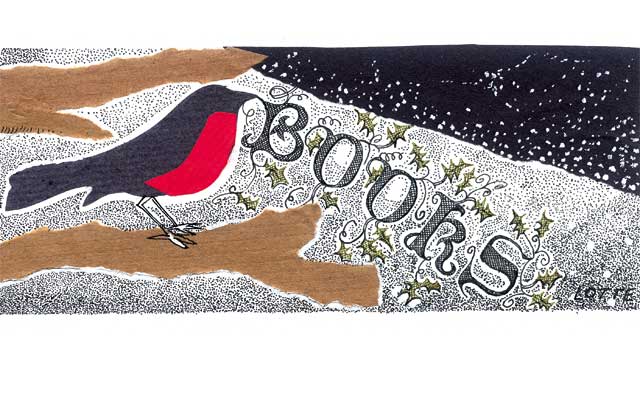
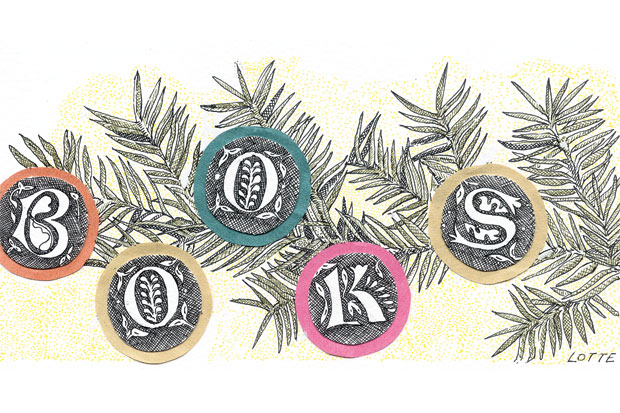



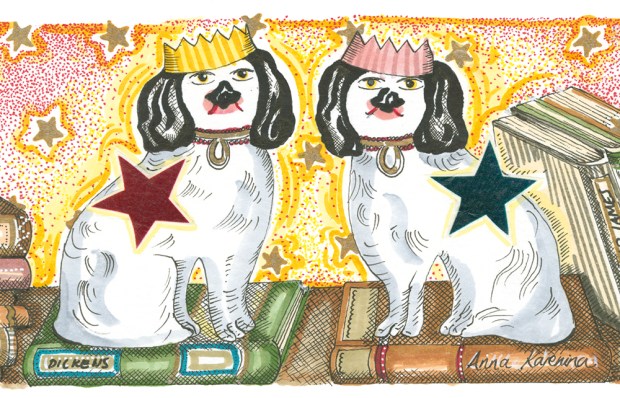
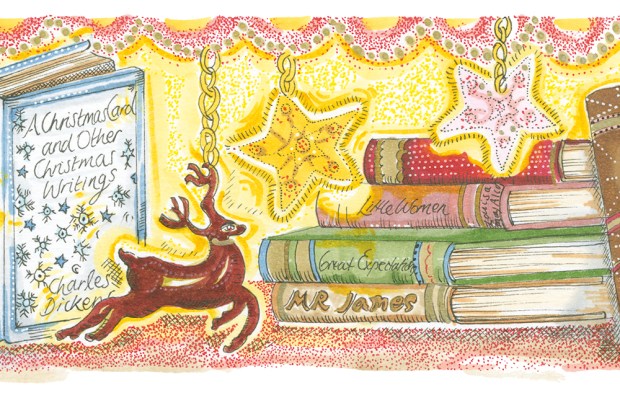






Comments
Don't miss out
Join the conversation with other Spectator Australia readers. Subscribe to leave a comment.
SUBSCRIBEAlready a subscriber? Log in